This blog post was written based on a new episode on my podcast FutureSkillsPodcast.com
The sleep, stress and hunger feedback loop is hormonal and it has a compounding effect.
Once you mess up one of the hormones, all the other hormones become worse.
Then it becomes a self-sustaining feedback loop which is hard to get out of.
Now I will break down how the sleep, stress and hunger feedback loop works and then summarise it at the end.
Let’s get started:
Why Bad Sleep Makes You Eat More Sugar and Snacks
When you’re stressed you find it harder to fall asleep.
When you don’t get enough high quality sleep, the prefrontal cortex which is the decision making part of the brain becomes impaired and thereby you find it harder to make decisions the next day and have a lower impulse control.
Whenever you feel hungry, you will be prone to eat candy and snacks instead of getting a nutritious meal.
This is compounded by the fact that you are sleep deficient, therefore you will use the sugar and stimulants to compensate for your lack of sleep.
The result is excess body-fat, lower testosterone levels and bad sleep the following nights. (Stimulants have an antagonistic effect on melatonin and that can lead to worse sleep the next night).
Being fat also decreases your overall sleep quality.
How Bad Sleep Lowers Your Testosterone Levels and Keeps You Fat
When you become fat from eating too much sugar and too many snacks, some of the most important hormones in your body change for the worse:
1) Leptin (the starvation hormone) increases when you have excess body-fat because it is produced by fat cells.
With increased leptin levels you will get less satiety out of the food you eat and thereby you will have a tendency to overeat.
This explains why fat people tend to overeat despite having a lot of stored energy in the form of excess body-fat.
They simply don’t feel satiated from the food they eat because they messed up their leptin levels.
2) Estrogen (the female hormone) increases when you have excess body-fat.
Since estrogen binds to testosterone (the master hormone for men which controls your body-composition, mental health, libido and erectile strength) your free testosterone decreases.
With decreased testosterone in your bloodstream you will have:
- A hard time gaining muscle mass and losing body-fat.
- Decreased focus and alertness.
- Lower energy levels.
- Lower sex drive and weaker erections.
- Lower motivation and competitive drive.
- More anxiety and depression.
In other words, you will be a much worse version of yourself in all areas of life.
The Sleep, Hunger and Stress Feedback Loop:
Here’s the sleep, hunger and stress feedback loop:
Stress >> Bad sleep >> Higher cortisol levels (stress hormone) + the prefrontal cortex (decision making part of the brain becomes impaired) >> Lower impulse control, tired and hungry >> Eat sugar and consume stimulants for fast energy and focus >> Become fatter and more stressed >> Bad sleep
Example of someone who is stuck in the stress, hunger sleep feedback loop: The fat person who goes to work with a cup of coffee and looks very stressed.
When you’re stuck in this feedback loop it’s very hard to improve yourself and make positive changes in your life.
Going to the gym is hard for relaxed, rested and lean people, but for people who are stressed, tired and fat it’s even harder.
Getting enough high quality sleep is one of the foundations of becoming the best version of yourself
Getting enough high quality sleep is one of the foundations of becoming the best version of yourself because it’s relatively easy to optimise your sleep compared to overhauling your diet or starting a new gym program… and the return-on-investment is massive.
Better sleep leads to:
- More rational decision making.
- More creativity. (Being able to do creative work is one of the most important future proof skills because it cannot be automated).
- Higher energy levels.
- Better focus.
- Better body-composition (less body-fat and more muscle mass).
- Better sexual health and higher sex drive.
- More motivation.
- Better mental health (less anxiety and depression).
- Faster recovery between training sessions.
- Increased satiety from the foods you eat.
- Less cravings for stimulants (coffee, cigarettes, energy drinks) and for sugary snacks.
In other words, there’s no rational reason for trying to sleep less hours.
Sleeping less hours will perhaps make you feel like you’re getting more done (and that could be true if you’re doing repetitive low value tasks that require minimal creativity or focus) but the reality is that you’re just going half-speed all day.
Your brain and body won’t be able to work at maximum output when in a sleep deficient state.
Why sleep a few hours less each day so you can go at half-speed when you could sleep a few more hours and go on full-speed all day long?
If you’re having trouble falling asleep at night, here’s a good tip for falling asleep faster: Make a detailed and realistic to do list for the next day before going to sleep.
The to do list must include 2 things:
- The most important tasks that you’ve been putting off or that stress you out. If there are too many, you choose the top 1-3 tasks that you can complete that day.
- It must have realistic time-slots for each task. If you think the task takes 2-5 hours to complete, schedule 6-7 hours for it just to be on the safe side.
Writing this to do list will make you feel calm and relaxed because you will feel in control of your life and thereby you will be able to fall asleep much faster.
All of us at Future Skills Podcast use this tip so we suggest you do it too.
Final note: If you don’t get enough high quality sleep for over 3 days in a row, your sleep deficient state becomes your new homeostasis.
In other words, your sleep deficient state becomes your new natural balance or steady state that your body and brain want to maintain.
Watch out for this and take action when it happens.
Oskar Faarkrog, ISSA Certified Trainer


 How to Fix Anterior Pelvic Tilt (Lumbar Lordosis) And Straighten Your Back Posture
How to Fix Anterior Pelvic Tilt (Lumbar Lordosis) And Straighten Your Back Posture
Hello Oskar, what is your thoughts on antidepressants? I am using for them for sleep, anxiety and depression. Without them i can not even sleep.
I don’t believe in psychiatric drugs as a long term solution. The long-term side effects are in most cases quite severe. They’re very hard on your cardiovascular health.
There are a lot of things you can do to improve anxiety and depression but it takes a lot of hard work and experimentation to find what works for you.
A lot of depression and anxiety is caused by high stress levels from our modern lifestyle where most people are overworked, lack of sunlight, lack of time spent in nature, bad social life (few friends, no social circle, no quality gf), poor diet that causes excess inflammation and mineral / vitamin deficiencies. And then there’s also a genetic factor and childhood issues that may never have been resolved. Overall, psychiatric medications are not proven to work long-term. If you can’t sleep, it’s a very serious issue and it must have a root cause.
You have to ask yourself: Why are you feeling anxious and depressed? Sit down and reflect and write down the reasons. Then start taking charge of your life and change the things that must be changed.
Then next up is your diet and supplementation regimen. Some good supplements to start with would be a high dose of high quality Omega-3 fatty acid oil (Nordic Naturals is a good brand), B-complex, Complete vitamin E with mixed tocopherols and tocotrienols, vitamin D3.
Also get bloodwork done. Check all your hormones, minerals and vitamins.
And cut out alcohol, wheat, dairy, sugar, soy completely from your diet.
Hey Oskar, just wondering what your thoughts on oatmeal (specifically rolled oats or steel cut oats)
Thanks,
Adam
Hey bro, shoot me an email at [email protected] and I’ll reply to your question there. It’s a bit easier through email since my website comment section is loading slowly these days due to a lot of comments.
This is a very great article I have noticed that my grades and motivation have gone up when i have started to sleep better